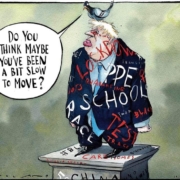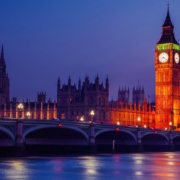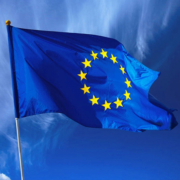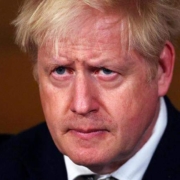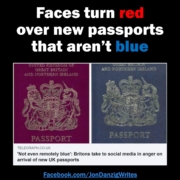Brexit, Lockdown and Ideology
The first things that springs to mind when thinking about the Tory Party and Brexit is often the European Research Group which has often been referred to as a right-wing party within the Tory party.
The ERG was established in 1993 with the aim of stopping Britain’s further integration into the EU against the background of the Maastricht Treaty and has exercised considerable influence over the Tory party in recent years. This influence is perhaps best demonstrated by Jacob Rees Mogg, Priti Patel and Michael Gove, who are amongst the ERGs more prominent members, and of course are now senior members of Johnson’s government.
Prior to the ERG, another right-wing group that had a considerable influence on the Tory party was the Monday Club. Founded in 1961 as a response to what was perceived by founding members as the Tory party moving too far to the left under MacMillan, the Monday Club adopted controversial stances on issues such as race, colonial independence and immigration and has counted individuals such as Norman Tebbit, Harvey Procter and Neil Hamilton amongst its membership.
As concerning as their stance on the issues of race, colonialism and immigration was, with hindsight, of far greater longer-term concern and consequence is the fact that the Monday Club was a hotbed of libertarianism in the early 1980s. Whilst the Monday Club has long since lost its influence and libertarianism is rarely mentioned or discussed in most political circles, the importance and influence of libertarianism on issues such as Brexit and indeed Lockdown should not be underestimated.
In a nutshell, libertarians believe in small government and do not believe that governments should restrict or constrain the individual in any way, even going so far as calling for so called victimless crimes, including the use of hard drugs, to be legalised.
Whilst such views can be and indeed often are viewed with some amusement by observers, when transferred to other contexts they can easily become most concerning and can have a profound and often adverse effect on government policy. For example, when transferred to the business world, this dislike for rules and regulation manifests itself as opposition to rules and regulations protecting the rights of workers.
On the political left, this opposition is often portrayed as a desire by the rich and greedy to exploit vulnerable workers, something which is fundamentally incorrect as far as libertarians are concerned. Libertarians oppose such rules and regulations, not because they wish to exploit others, but simply because they oppose all such rules and regulations. They believe that the marketplace will regulate itself and that issues such as wage levels, annual leave and other benefits will naturally settle at appropriately fair levels.
The flaws in this belief are numerous, not least that as economic conditions vary the demand for labour will vary. When demand is high, wages will rise along with other employment benefits, but when demand is weak, the opposite will happen causing financial insecurity for individuals making them vulnerable to the exploitation that the political left fears.
Nonetheless it is this fundamental opposition to regulation that drives libertarians, not the desire to exploit. Libertarians are opposed to all regulation which is why we often hear phrases such as ‘bonfires of regulations’ coming out of the right wing of the Tory Party.
When you consider this ideological belief system in the context of the European Union, it is immediately apparent why libertarians dislike the EU so much. The EU, with its regulatory protection, not just for us as employees, but also for us as consumers and for the environment and so on, is the very antithesis of libertarianism.
Libertarianism is the ideological basis of the opposition to the EU on the grounds of over regulation so often voiced by the right wing of the Tory party, which has its roots in the Monday Club. Indeed, many of the more prominent figures on the far right of the current Tory Party would have been impressionable teenage members of the Young Conservatives when the Monday Club was at the height of its influence in the early to mid 1980s when it was ‘the’ place to be seen for those aspiring to a political career within the Tory Party.
If that libertarian influence on Brexit were not bad enough, the influence of libertarianism on our Government’s response to the Covid is even more concerning.
The dislike that right wing libertarians have for rules and regulations explains why the Johnson Government was slow to impose lockdown and instruct people to stay at home a year ago – as libertarians they were ideologically opposed to the imposition of the lockdown rules and opposed to issuing instructions to us to stay in our homes. Doing so was contrary to their core belief system.
Whilst libertarian opposition to the EU and its influence on Brexit caused economic destruction and removed rights, libertarian influence on government policy relating to the pandemic evidenced by that slow lockdown and that failure to instruct us to stay at home caused thousands of British people to needlessly lose their lives.
People in the Remain/Rejoin movement rightly point to the role of nationalism in Brexit and indeed its danger to wider society but we often forget the role libertarianism played and the dangers it represents to wider society.
We need to recognise that role and that danger.



